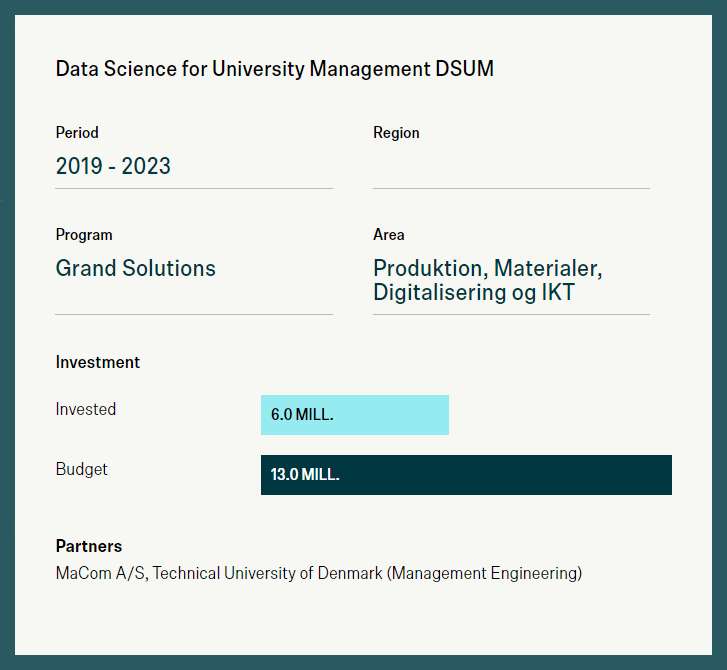Data Science for University Management (DSUM) is a Grand Solutions project funded by Innovation Fund Denmark and MaCom A/S. The project includes research and development of a decision-supporting tool for university timetabling.The research is done by two PostDoc researchers, Rasmus Ørnstrup Mikkelsen and Dennis Søren Holm supervised by Assoc. Prof. Thomas Stidsen located at DTU Management. Rasmus and Dennis have completed the Ph.D. projects Quality Timetable Recovery and Strategic University Timetabling

What capacity and features should we aim for when building new rooms?
What is the best possible schedule for next semester?
How do we handle the unforeseen unavailability of room 42 the next 3 weeks?